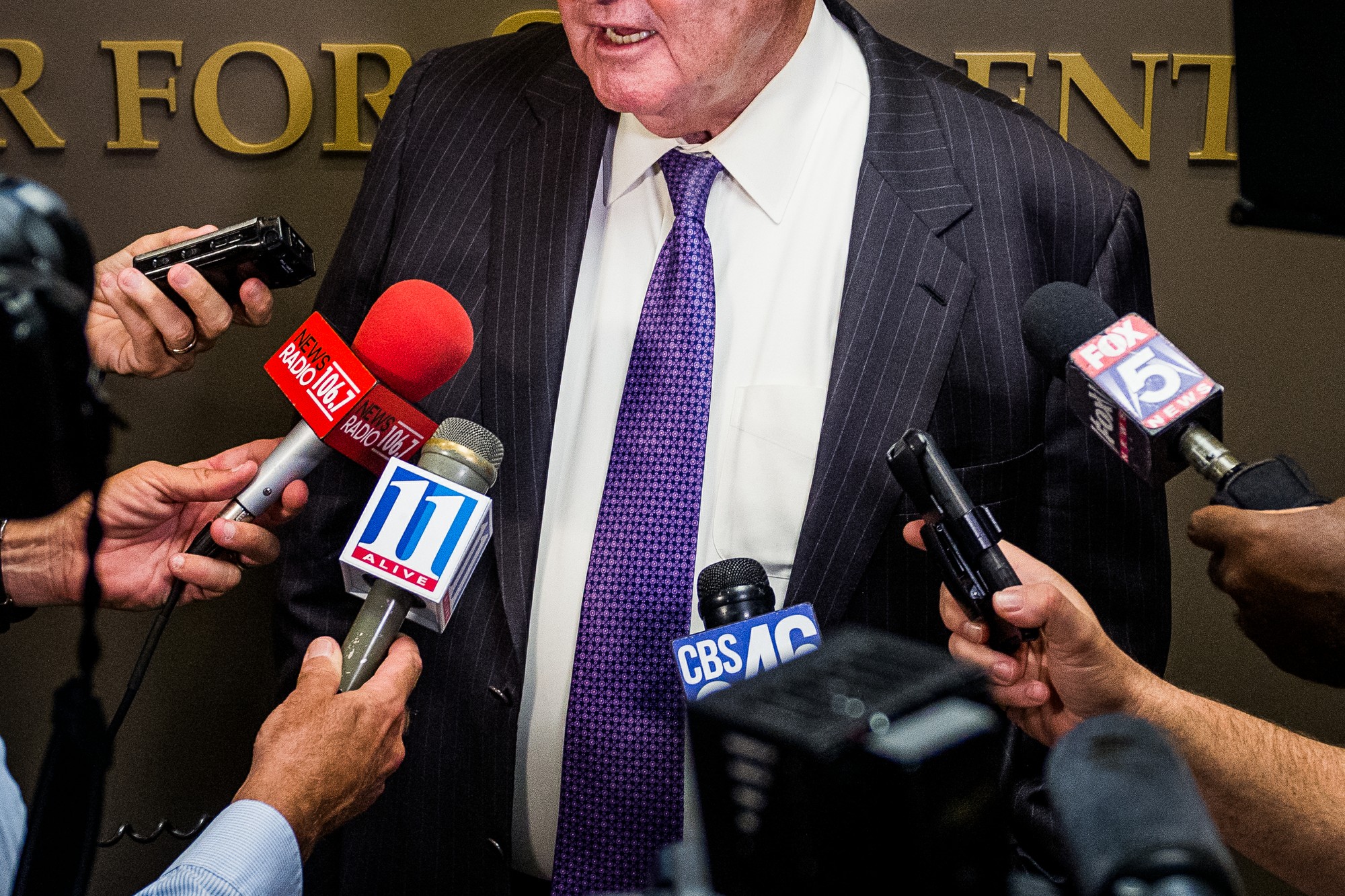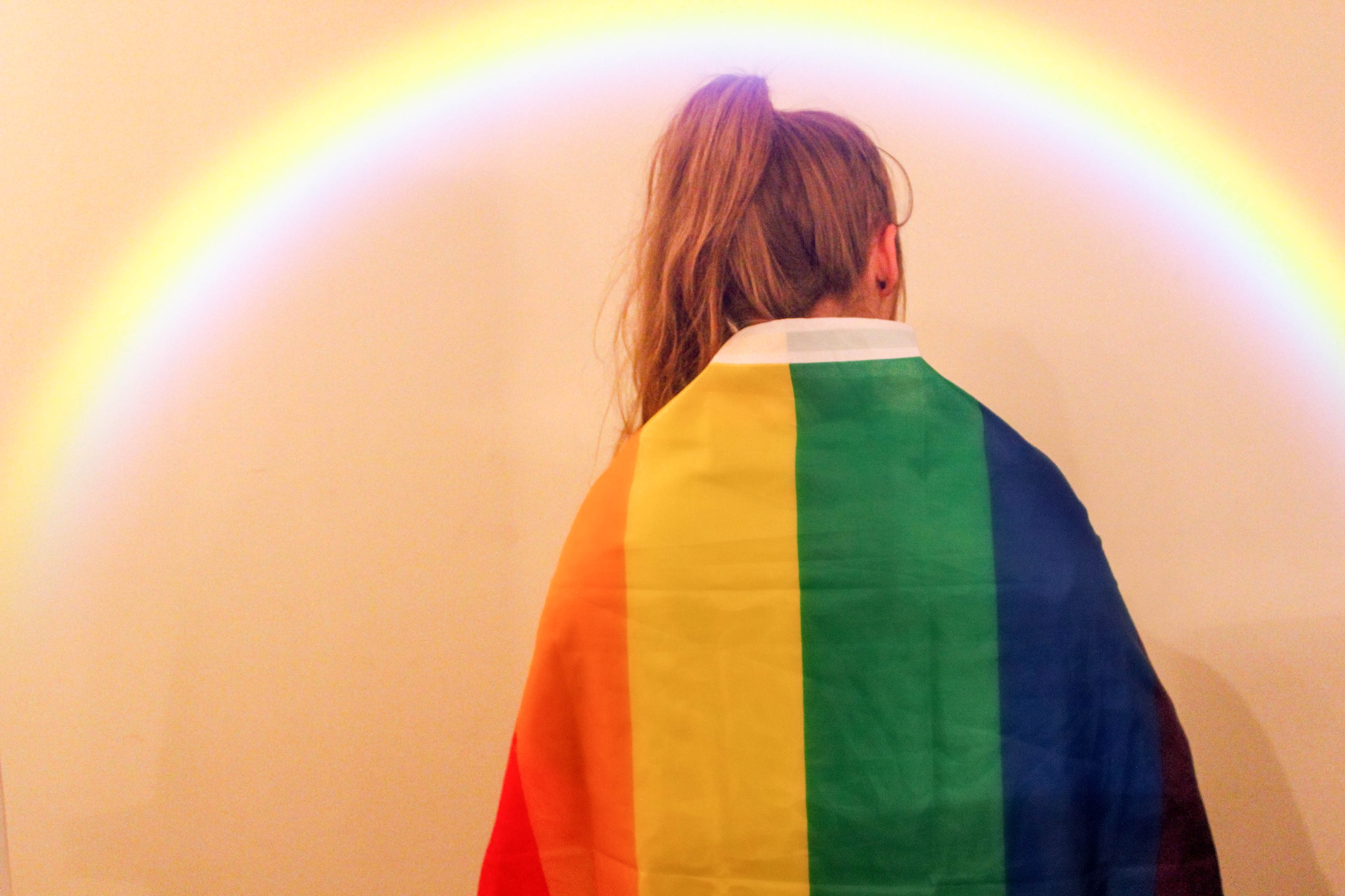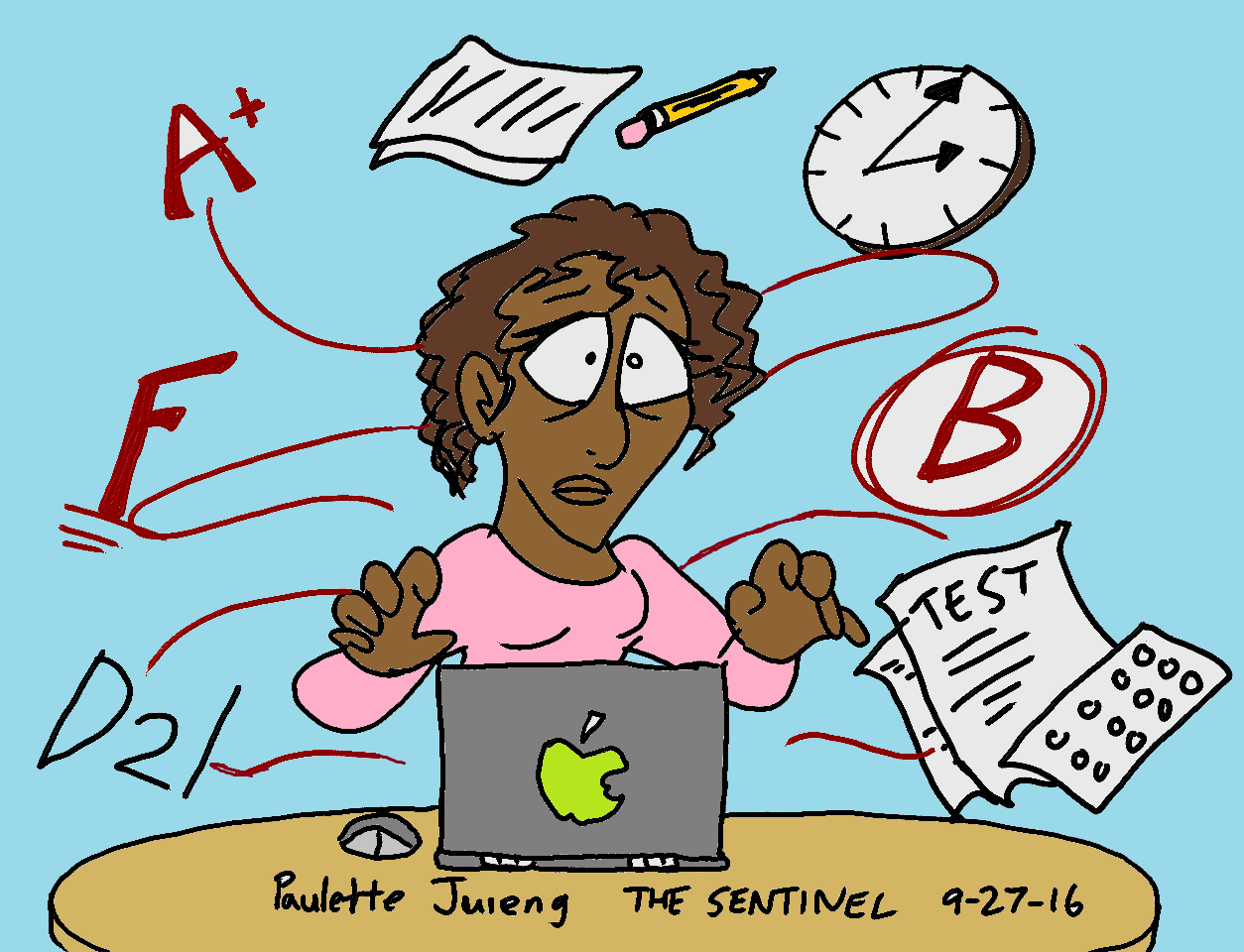Amendment I
“Congress shall make no law respecting an establishment of religion, or prohibiting the free exercise thereof; or abridging the freedom of speech, or of the press; or the right of the people peaceably to assemble, and to petition the government for a redress of grievances.”
On Friday, Feb. 24, news outlets CNN, The New York Times, Politico, The Los Angeles Times, BuzzFeed, the BBC and the Guardian were banned from participating in a White House briefing with Press Secretary Sean Spicer. This act by the White House raises many questions and concerns for journalists around the country, especially those of us preparing to enter the industry after college.
This action comes in the wake of multiple speeches from President Donald Trump in which he has openly and consistently attacked the media, calling it the “enemy of the American people.”
The Trump administration’s interactions with the media, specifically those that do not cater to his liking, encourages distrust in the press and threatens the integrity of the democratic ideals that the United States of America was founded upon.
This ban on specific news outlets from the press briefing directly threatens the right to freedom of the press, guaranteed by the First Amendment.
It is neither the role nor the privilege of any governing body to decide or declare the legitimacy of news sources, especially those which are reporting on that governing body. The press often finds itself acting as a system of checks and balances, and any citizen of a country which claims to support a free press should wonder what is to be gained by suppressing those checks and balances.
When the press is censored or not allowed to report its perspective, the process by which the public can assess its own “truth” is prone to direct — and unconstitutional — influence by those who enforce said censorship. Governmental interference with the press should be alarming to all citizens, regardless of party affiliation.
Reporting the Facts
Many believe that an entirely unbiased press is a near-impossible feat to achieve. Journalists take a professional interest in maintaining objectivity when reporting on matters which affect all those who may agree or disagree with their own perspective. Sometimes, however, the simple act of reporting — or not reporting — on a story carries an inherent bias.
Entire narratives can be spun out of a list of facts supported by pictures, videos and testimonials, all of which are technically “true.” All it takes to push an agenda is to purposely leave out the evidence which does not support that agenda. This process can be and often is applied to the full spectrum of political affiliation.
The sad reality of today is that many major news publications feel the need to cite websites like Politifact.com or Factcheck.org to justify their claims. Whatever happened to not publishing something that is not true?
The issue is not so much “fake news,” but rather “lazy news.”
Journalism has reached the point where stories come first, facts come later — the American people are aware of this. People should be less worried about whether or not what they’re being told is true is actually true, but instead they should wonder, “Is there anything that’s specifically not being mentioned?”
This is a nuanced but enormously-important fact which all consumers of news media need to understand. All news sources, especially an individual’s preferred sources, should be meticulously fact-checked and cross-referenced with other sources before any measurement of “truth” can be assumed. For that to be possible, multiple sources of news need to be allowed to work unhindered to report their side of a story.
It stands to reason that there are protocols in place to limit the ability of the press to cover and report on what the government does. It is important that we rally behind journalists in the face of such opposition, but it is possible to hold the news media to a higher standard while also recognizing the crucial role it plays in keeping the powerful in check. Being critical of the media while also supporting freedom of the press are not mutually exclusive ideals.
The Bottom Line
We, as journalists, make mistakes just as much as anyone else in this world. Regardless of the underlying issues with the mainstream media, however, banning certain outlets from attending a press event is a slippery slope. The press is free in order to prevent corrupt governments from controlling what we know, and it should stay that way.
As journalists, we are increasingly worried about entering an industry that is not only hated by millions of people, but that is also becoming increasingly dangerous to be affiliated with. Our job as journalism students is to learn how to accurately and effectively report on events that other human beings cause or partake in so that the rest of the community, country and world can be informed about the stories that affect them.
Without the media, there would be no protests and no movements. There would be no women’s marches or Black Lives Matter activists. There would be no action to end systemic injustices like police brutality or sexual molestation within church communities.
Remember that these injustices were discovered and publicized by the media, and that is what sparks change. We here at The Sentinel hope that, some day, the current administration will stray from its anti-media rhetoric.



